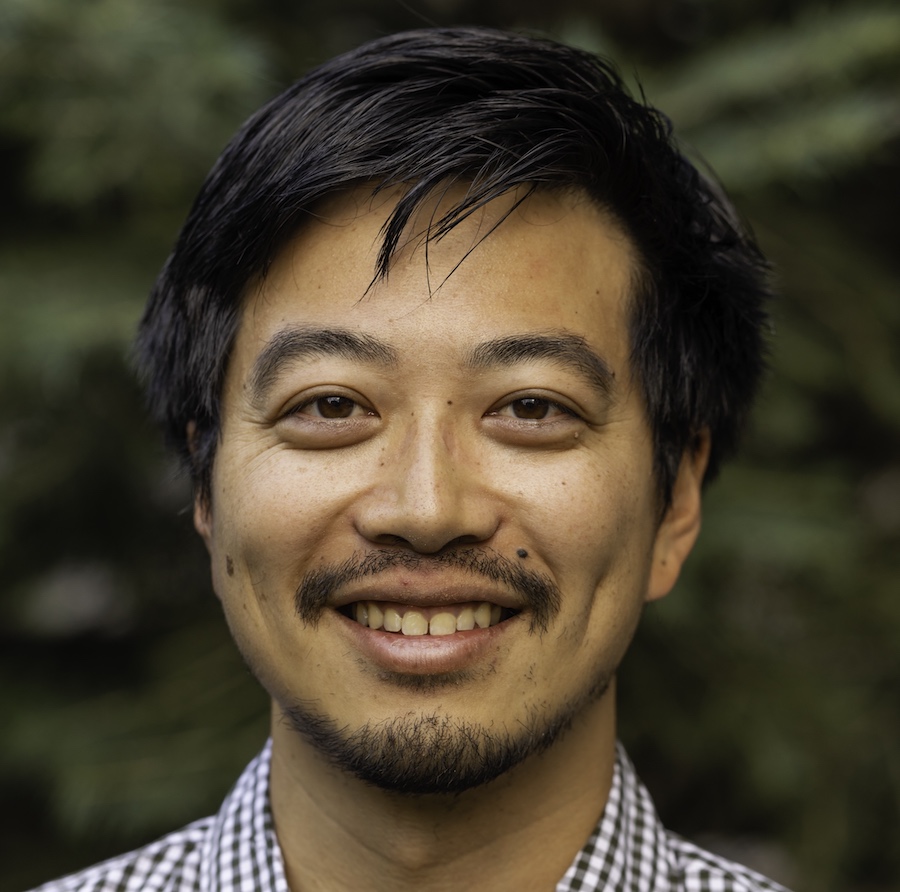Praised by his PhD students for his compassion, enthusiasm, and collaborative nature, University of Colorado Cancer Center member Edward Chuong, PhD, is one of 13 faculty members at CU Boulder to be recognized as an outstanding graduate student mentor for 2024.
Presented by the Graduate School at CU Boulder, the student-nominated award recognizes faculty members for their outstanding contributions either to mentoring individual graduate students, improving the overall climate of graduate education within their program, or improving the graduate program itself.
“It was really nice to receive it; I wasn’t expecting that all,” says Chuong, assistant professor of molecular, cellular, and developmental biology at CU Boulder’s BioFrontiers Institute. “I give my trainees a lot of independence, and I let them develop their projects independently. I see myself more as a guide, rather than their boss or supervisor.”
Motivation and personal support
That approach is appreciated by one of the graduate students who nominated Chuong for the mentorship award: Lily Nguyen, an MD-PhD student at the CU School of Medicine who is mentored jointly by Chuong and CU Cancer Center member Benjamin Bitler, PhD, associate professor of OB-GYN and basic reproductive science.
“Ed meets with us one on one every other week, and each of those meetings is very thorough,” Nguyen says. “If there’s anything I feel stuck on, he’ll figure out creative ways to push me — either sit down and work through the problem with me or connect me with someone else who is able to help.”
Nguyen also appreciates the compassion and personal support Chuong has shown to her. Her time in his lab coincided not only with the COVID-19 pandemic, but with the death of one of her close friends, her wedding, and the birth of her first child.
“During all those times, he was very supportive,” she says. “I didn’t feel pressured to do any work, and he told me to enjoy the good times or to take time to grieve. A PhD is hard; there was a period where I felt burnt out, and I communicated that. He said, ‘Absolutely, take whatever time you need.’ Not having that pressure, and fully being able to decompress, I was able to come back better.”
In the letter that Nguyen and her lab mates wrote to nominate Chuong for the mentorship award, they note that he has mentored five doctoral trainees, two postdoctoral researchers, and multiple undergraduate researchers. Two of his doctoral trainees have successfully completed their PhDs.
“Ed is an incredibly compassionate mentor who values the individual needs of his trainees and always advocates for his students,” the letter reads in part. “Ed has fostered a supportive, collaborative, and open-minded environment for everyone in his lab to do their best work. This environment helps us all look forward to coming into the lab each day. Ed also advocates for all his trainees, ensuring that we all have the necessary resources and opportunities to be successful scientists.”
Giving students ownership
For Chuong, whose lab focuses on genomics, part of the mentorship process is making sure his mentees have a project to call their own.
“It’s very important for a student to feel like they have ownership of a project,” he says. “That will motivate them, and that will give them the drive to see the project through. I like to guide the students to discover something that only they have discovered, whether it’s a gene or a regulatory element or some piece of the genome they thought was important that no one else has looked at before.”
Chuong says he also makes it a point to be supportive of his mentees’ career goals, especially given the changing nature of academia.
“It used to be that you went to grad school to become a professor,” he says. “But I am part of a generation where the competition for that kind of position is not favorable. There’s a whole universe of other options. For me, as long as you’re spreading the rigor of scientific thinking to anything you do, that’s great. No one has to be a professor, and they also don’t have to be a startup founder. It makes sense that people have diversified, different careers.”
Diversity, equity, and paying it forward
In addition to mentoring students in his lab, Chuong also is faculty advisor of CU Boulder’s STEM Routes Uplift Research Program an undergraduate scholars program developed to improve the retention and success of students from underrepresented groups in STEM fields. It’s all part of his effort to pay forward the mentorship he received as a student.
“I’ve been fortunate to have mentors who gave me a lot of space and freedom,” says Chuong, who recently published research in the journal Science Advances about how endogenous retroviruses, or “junk DNA,” can help cancer survive and thrive. “My experiences, both in undergraduate and graduate research labs, was about having the freedom to pursue interesting questions. That was so special to me, and it’s why I pursued a career in academia.
“Giving some kind of structure but still allowing space for intellectual development is very important,” he continues. “I want to treat them like a growing scientist, not a technician at a company. My mentoring philosophy is largely shaped by the positive experiences I had as a trainee.”
Featured image: Edward Chuong, PhD, second from left, with members of his lab on a trip to the mountains.




